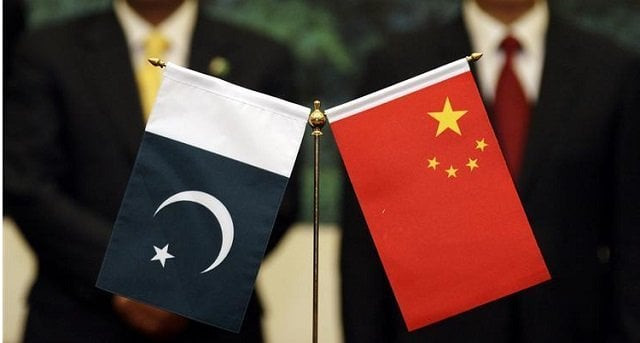CPEC criticism: What needs to improve?
Pakistan must not engage in rhetoric, pay attention to developing projects

PHOTO: REUTERS
Western think tanks also keep producing material to lash out at CPEC on one pretext or the other. They have found a good partner in the region in the form of India.
Unfortunately, the potential huge economic benefits are undermined in this campaign. Pakistan and China have been striving to highlight benefits of the economic corridor for the region and beyond for the past six years.
At the same time, Pakistan needs to be cognisant of the fact that there are some areas that need to be focused on to silence the CPEC detractors.
First of all, the country needs to understand that CPEC is an economic initiative and not a charity programme or aid initiative. It should focus on economic dimensions of CPEC. Inability to do so will impact the economic benefits.
Second, there is no second opinion that Pakistan and China are iron brothers and have stood with each other in testing times. However, many of the companies doing business under CPEC are not government entities.
They are here to do business and will put in every effort to secure benefits for their own companies. Pakistan should learn how to engage with them and come up with right proposals to negotiate projects under CPEC. Unfortunately, Pakistani officials waste much time in rhetoric and give less attention to developing project proposals according to the country’s economic needs.
This also impacts the reputation of China. Though Beijing is trying to assist Pakistan, it comes under criticism due to that issue, which is unfortunate and unfair.
Third, China has designed the gigantic CPEC project to create a win-win situation. CPEC is equally important and beneficial for China as well that will provide a vital trade route for Beijing. A study highlights that if China uses the CPEC route for trade with six countries in the Middle East and Europe, it will be able to save almost $70 billion annually. The estimate is based on data for the year 2016-17.
Pakistan will also earn good revenue of around $6-10 billion through different types of services and fees. Mutual gains from the industrial, agricultural and scientific cooperation will be even more rewarding for both the countries. Thus, the focus must be on implementation and completion of projects on time.
Undue hype
Fourth, there is a need to rationalise expectations. CPEC is not an answer to every problem of Pakistan. No doubt, it is the biggest project in Pakistan’s history, but the national economy is bigger than that. Hence, the country will have to create other avenues and there is no need to create undue hype.
Besides, Pakistan also needs to learn from China as to how to keep things low profile. Any irrational behaviour gives rise to two major problems that also give a chance to opponents to play games.
On the one hand, the irrational behaviour creates a class of people that goes beyond limits to praise something. That, in turn, makes policymakers lazy.
On the other hand, it paves the way for a class of people that opposes CPEC like a hell. They hold the project responsible for many ills in Pakistan. They keep criticising the programme, just for the sake of criticism.
Fifth, the engagement strategy is very weak. It only depends on marketing and social campaigns. Furthermore, the tools of marketing are also very weak. We are living in the 21st Century and are trying to win the war with tools of 20th Century. The circumstances call for building a creative engagement strategy, which caters to the demand of the 21st Century.
It should not be only marketing and social media strategy. These should be part of a broader engagement strategy. This will not only help to attract the audience but will also sustain the audience.
Moreover, officials do not make efforts to get feedback, which is very important as it helps to refine policy interventions. The core of the engagement strategy is to have two-way flow of views. People feel comfortable when their views are listened. It can help to create personal linkages or make commitments. It also motivates people to be part of the solution.
However, the focus of the strategy must be the people, not only selected groups. The real strength would be when officials reach the grass roots levels. To develop the strategy for CPEC, some lessons can be drawn from employee or member engagement strategies.
Fifth, incentives should be framed and offered to encourage different countries of Europe to be part of CPEC. In this regard, the planned Special Economic Zones can provide a handsome opportunity. The starting point can be the setting up of a sister park in Pakistan of China’s Sino-German Park. Its successful execution will help to expand the strategy and will encourage other countries.
Last, the best way to counter the propaganda is reliance on knowledge and not rhetoric. There is a need to engage knowledge houses to support the engagement strategy.
The writer is the Director, Asia Study Centre, SDPI
Published in The Express Tribune, June 1st, 2020.
Like Business on Facebook, follow @TribuneBiz on Twitter to stay informed and join in the conversation.



















COMMENTS
Comments are moderated and generally will be posted if they are on-topic and not abusive.
For more information, please see our Comments FAQ